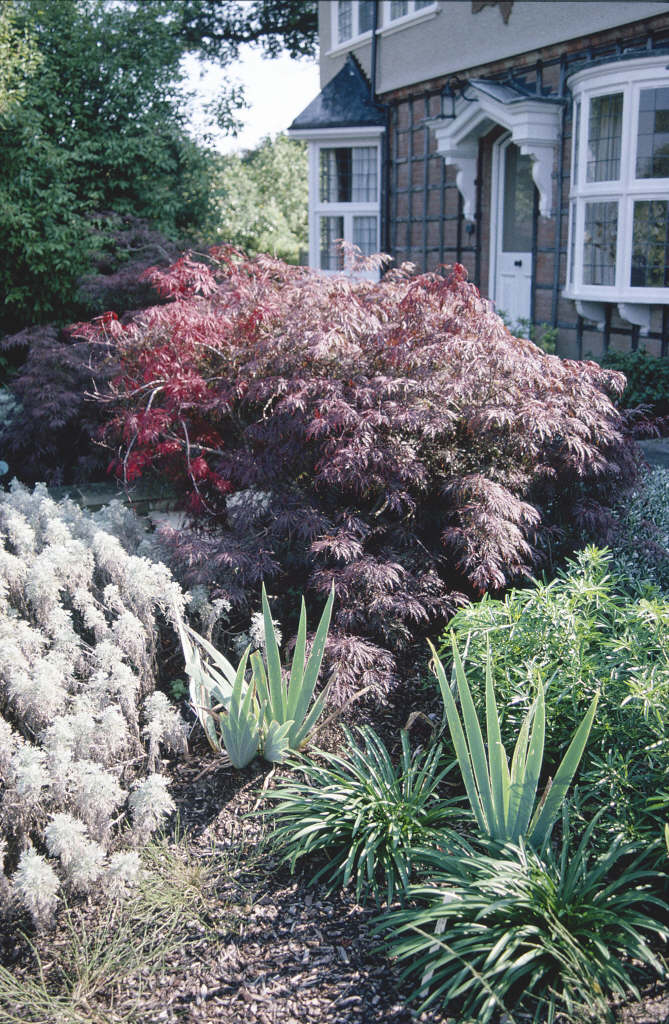Size
Ultimate height
1.5–2.5 metresTime to ultimate height
10–20 yearsUltimate spread
1.5–2.5 metresGrowing conditions
Moisture
Moist but well–drainedpH
Acid, NeutralColour & scent
| Stem | Flower | Foliage | Fruit | |
| Spring | Purple | Purple | ||
|---|---|---|---|---|
| Summer | Purple | |||
| Autumn | Orange | |||
| Winter |
Position
- Full sun
- Partial shade
Aspect
East–facing or South–facing or West–facing
Exposure
Sheltered Hardiness
H6Botanical details
- Family
- Sapindaceae
- Native to GB / Ireland
- No
- Foliage
- Deciduous
- Habit
- Bushy
- Genus
Acer can be deciduous trees or large shrubs with paired, often palmately-lobed leaves and small flowers followed by characteristic winged fruits. Many have fine autumn colour, and some have ornamental stems
- Name status
Unresolved
- Horticultural Group
- Acers in this dissectum group have fine, feathery, deeply divided leaves with finely serrated edges
How to grow
Cultivation
Grow in a moist but well-drained soil. Water in summer if necessary. Leaf colour is best in partial shade, although full sun can be tolerated. Leaf scorch can be caused by lack of soil moisture or excessive exposure
Propagation
Suggested planting locations and garden types
- City and courtyard gardens
- Cottage and informal garden
- Low Maintenance
- Banks and slopes
Pruning
Pests
May be susceptible to Acer gall mite, aphids, caterpillars and horse chestnut scale
Diseases
May be susceptible to Verticillium wilt, Acer leaf scorch and honey fungus
Get involved
The RHS is the UK’s gardening charity, helping people and plants to grow - nurturing a healthier, happier world, one person and one plant at a time.
